- Waterloo marks 15 straight years as top research university
- Registration for annual Staff Conference now open
- Nominations are open for the Employer Impact Awards
- 30 student teams to take the stage at Velocity's $5K semi-finals
- Remembering Dr. Paul Karrow
- Open Education Week Series: Marking Open Education Week and SDG Week
Editor:
Brandon Sweet
University Communications
bulletin@uwaterloo.ca
Waterloo marks 15 straight years as top research university

By Angelica Sanchez. This article was originally published on Waterloo News.
The University of Waterloo has been designated Research University of the Year among Canadian comprehensive universities by Research Infosource Inc. for the 15th consecutive year.
Waterloo’s President and Vice-Chancellor, Vivek Goel, says the University’s research excellence stems from its continued focus on empowering its students, faculty, and community to seek out solutions to the world’s most pressing challenges.
“As an institution, we’re committed to being bold and creative in our teaching and research to ensure a stronger and healthier tomorrow,” Goel says. “Waterloo researchers excel in fundamental and applied research conducted in a unique environment that integrates experiential education and entrepreneurship. Our research advances society with impact across the economy, advancing the use of emerging critical technologies with application in areas such as sustainability and health with local and global impact.”
Waterloo’s consistent ranking as Canada’s most comprehensive research university is a testament to the University’s strategic priority to strengthen global connections and advance research for sustainable solutions in our evolving world.
Waterloo also ranked first for research income and corporate research income among Canada’s Top 50 Research Universities in the comprehensive category and second for not-for-profit research income in the same category.
“We are delighted that Research Infosource has once again recognized Waterloo’s research excellence among Canadian comprehensive universities,” says Charmaine Dean, vice-president of Research and International at Waterloo. “It is a true reflection of the dedication of Waterloo researchers and their pursuit of global change to build a more sustainable future for humanity.”
Research Infosource’s Canada’s Top 50 Research Universities rankings are based on a balanced set of impact measures that distinguishes exceptional achievement in research income and publishing research in leading scientific journals.
Registration for annual Staff Conference now open
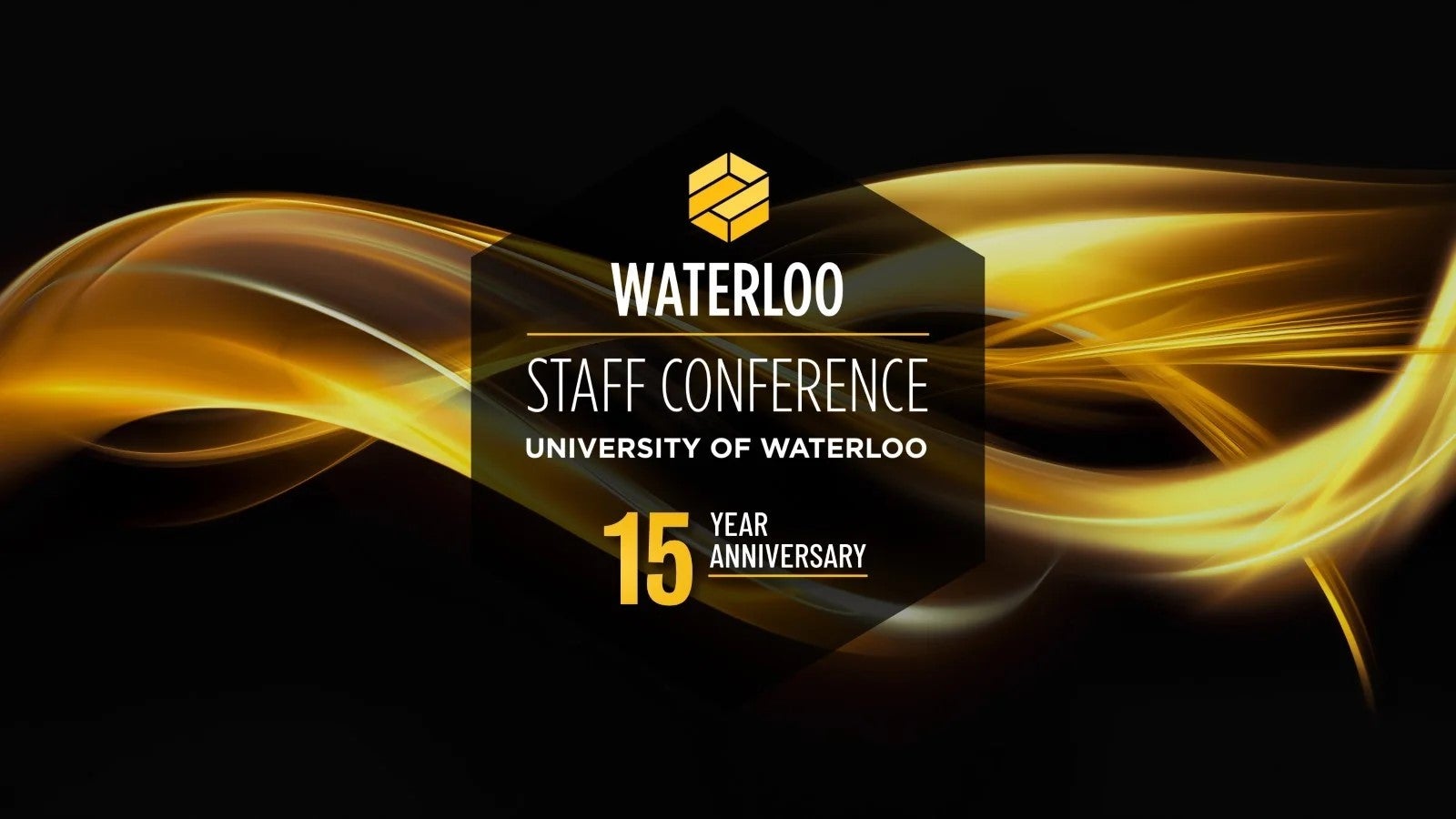
Join the 15th annual Waterloo Staff Conference on April 11 and 12 – a must-attend event for all University of Waterloo staff.
We are thrilled to bring our community together again in person on day one of the conference and to offer virtual ways to connect on day two. This year's conference will feature an exciting lineup of keynote speakers including best-selling author Neil Pasricha, an interactive keynote with Juice Inc., and award-winning speaker Cassie Holmes. Additionally, we will have a series of expert-led workshops. We cannot wait for everyone to come together in-person and virtually this year so don’t miss out on this incredible event.
Register for the Waterloo Staff Conference on Portal and get ready for a truly unforgettable experience.
Nominations are open for the Employer Impact Awards
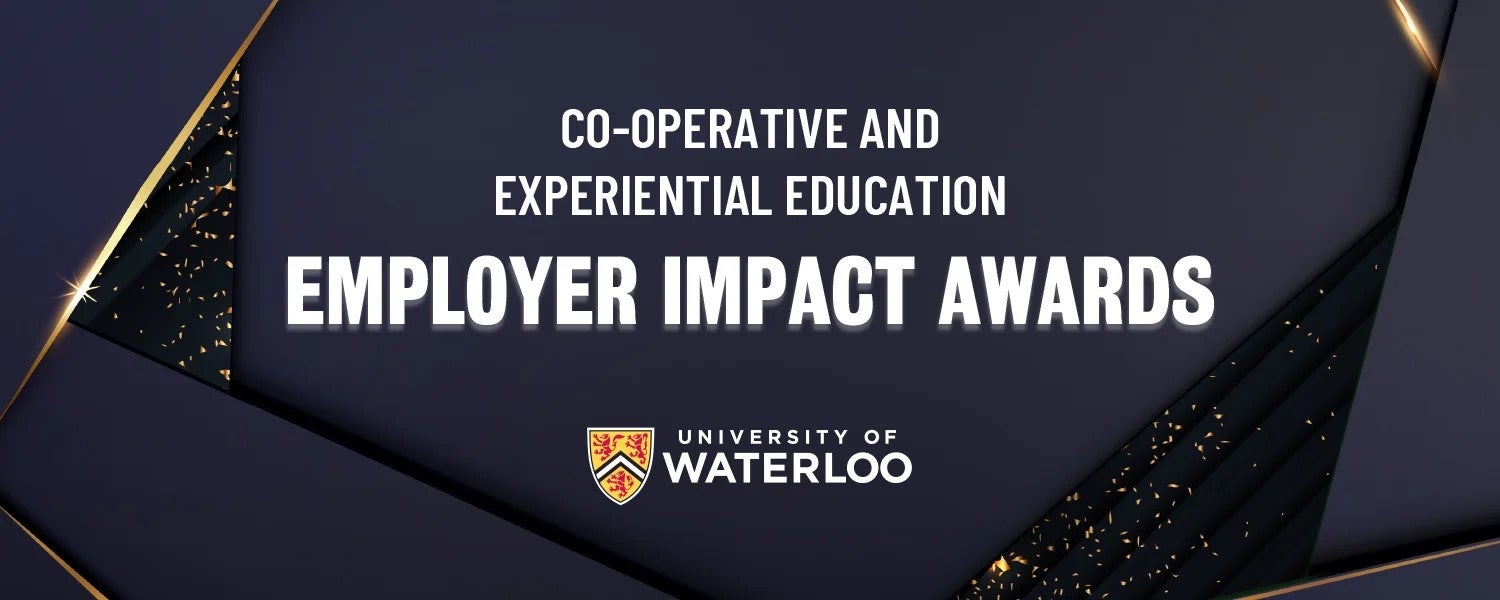
Are you a unit within the University that hires co-op students? Do you work with other exceptional organizations that hire our students? If so, consider submitting a nomination for this year’s CEE Employer Impact Awards.
Employer Impact Award recipients receive:
- Acknowledgement of the award displayed on a plaque in the Tatham Centre.
- A video highlighting the organization’s industry excellence and the contributions of co-op students.
- Recognition at the awards ceremony.
- A recognition package including a physical award.
- A suite of digital assets (including badges, images and content) to use on the web, social media, ads and in email signatures.
- Story features on the University website and social media
- The deadline to nominate is Friday, March 17, 2023, at 4:30 p.m. ET.
30 student teams to take the stage at Velocity's $5K semi-finals
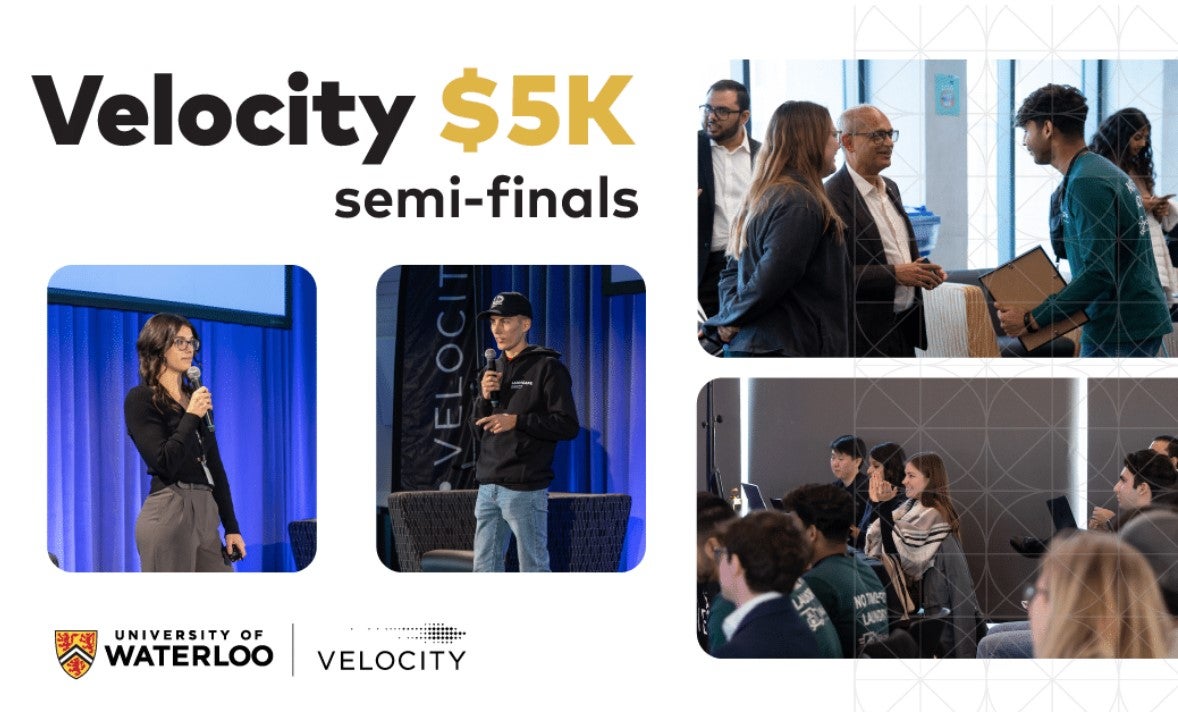
Thirty student teams from Arts, Math, Science, Health and Engineering faculties are preparing to take the stage and pitch at Velocity’s $5K semi-finals for their chance to advance to the flagship finals event later this month.
After receiving a record number of applications since in-person events resumed, an experienced panel of entrepreneurs chose the student teams — 15 pitching each night — to compete at the semi-finals held 5:00 – 7:00 p.m., March 15th and 16th at QNC 0101.
Held every term, the Velocity $5K pitch competition sees early-stage student ventures pitch live for a chance to win one of four $5,000 awards.
Each semi-finalist will have just three minutes to present their idea and convince a new panel of judges that it has potential and viability to succeed. Only then will they move on to the final round.
The top eight teams from the two rounds will return to the stage for the finals on March 30th and four teams will take home $5,000 in grant funding to help grow their ambitions and innovative business ideas.
Take a look at the Winter 2023 finalists
Remembering Dr. Paul Karrow
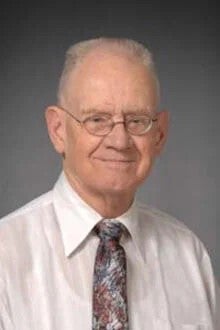
The Department of Earth and Environmental Sciences is mourning the passing of Dr. Paul Karrow. He was a founding member and the first Chair of the Department. Karrow passed away on February 5, 2023 at the age of 93.
Karrow, a sedimentary geologist, was one of the “Grandfathers” of Quaternary Geology. He was widely known for his contribution to the field of geological sciences and was most recognized for mapping the great lakes area.
Born in St. Thomas, Ontario as the only child of an RCMP family, Karrow moved frequently. He earned a BSc from Queens University (1954) and a PhD in Geology from the University of Illinois (1957).
He worked for the Ontario Department of Mines before joining the University of Waterloo in 1963. He was hired as an Assistant Professor in the Department of Civil Engineering to teach geology. Two years later, in 1965, the Department of Earth Sciences was founded and Karrow became the first Department Chair.
“Paul Karrow was there at the very beginning of our department in 1965, as its first chair," said Mario Coniglio, Department Chair. "In the decades that followed, he continued to be an enormous influence on our department’s research and teaching directions. His fingerprints are all over our enduring success.”
Karrow's research focused on the Earth's Quaternary history - the most recent 2.6 million years of Earth's geologic history. He was a prolific writer and published more than 200 articles. He is the leading authority on Quaternary stratigraphy and history - in the Great Lakes region, Toronto’s Interglacial and glacial deposits, and glacial Lake Algonquin, just to name a few.
He blazed a new trail for the “hard-rock-focused” Ontario Department of Mines to map the overburden (or sediment layers on top of southern Ontario’s bedrock), driving every road and stopping every kilometre or so to dig, examine and test the sediment - creating detailed surficial geology maps.
Throughout his work, Karrow blended and connected academia and industry. He created the Pleistocene Discussion Group and mapped numerous areas in southern Ontario that still provides the foundational knowledge needed to understand groundwater, resources like aggregate, and for building and planning.
He left the Ontario Department of Mines and joined the University of Waterloo because he wanted to teach. He taught Earth 440 – Quaternary Geology for decades, training countless students. Dr. Martin Ross took over teaching the course and reflects on the impact Karrow had.
"He was so kind to invite me along to take part on these field trips as I would be starting to teach that course the following year. It was a great opportunity for me to learn from the ‘Master”," said Ross. "While the field trips and scientific knowledge have evolved over the last 15 years, I still integrate several things I learned from him and pass that knowledge onto the new generation of Earth Sciences students. I am so glad we were able to overlap and interact a little bit."
Continue reading about Dr. Paul Karrow's accomplishments
Open Education Week Series: Marking Open Education Week and SDG Week
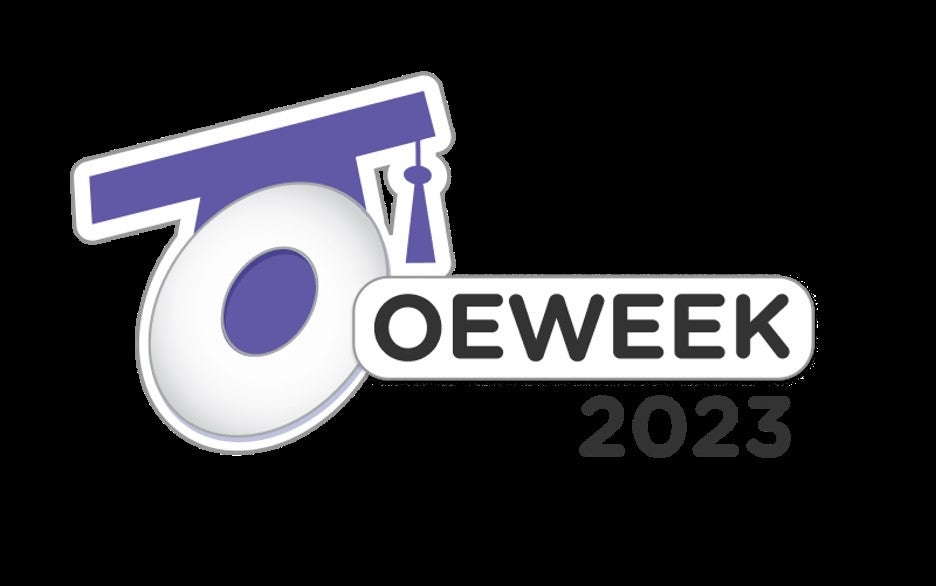
By Michelle Angkasa. This article is one of a series celebrating Open Education Week, brought to you by the Open Scholarship Committee.
March 6 to 10 marks both Open Education Week and SDG Week at the University of Waterloo.
Open Education Week, launched by Open Education Global, highlights success stories of open education. This is one of the pillars of open scholarship that comprises of digital tools, resources, and practices. These aim to advance equity and accessibility by improving the effectiveness and reach of education.
SDG Week is a national campaign led by UBC, SDSN Canada, and Colleges and Institutes Canada. During this week, universities and colleges around the country organize workshops, panels, and other events to promote awareness of and engagement with the Sustainable Development Goals (SDGs).
Common to both initiatives is the goal of democratizing knowledge: making education easily accessible to everyone to achieve equity. In particular, SDG 4 (Quality Education) and SDG 10 (Reduced Inequalities) link directly to the goals of Open Education Week. Global shifts caused by the pandemic, climate change, and advancing technology fundamentally change the way we learn and interact with the world. To meet the challenges of today, accessible education on societal issues is paramount.
Integrating sustainability into teaching and learning at UWaterloo
At the Sustainability Office, we recognize that open education and the SDGs are related to our work with sustainability on campus. To face the climate crisis, we need everyone to get involved. At the campus level, this means bridging disciplines so everyone, regardless of their academic background, can contribute to solutions. At the community level, accessible knowledge empowers people to make personal lifestyle changes and advocate for system-wide change.
There are nearly 700 courses with likely connections to the SDGs at the University of Waterloo and more than 360 faculty members conducting research on the same. Waterloo's inaugural Sustainable Development Goals Report, released in April 2022, provides more information about Waterloo's progress and directions.
More recently, the Centre for Teaching Excellence has been working to integrate sustainability into courses through hosting a design cafe and an Assessment Showcase for instructors.
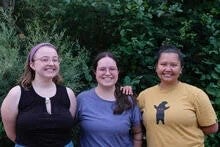
The student-led Sustainability Literacy Initiative is another group pushing for sustainability to be embedded into the curriculum more broadly.
As co-chair Ceileigh McAllister explains, Comprehensive sustainability education for all undergraduate students would help ensure that our graduates remain competitive and impactful members of the workforce. The far-reaching implications of environmental and social challenges require that sustainability transforms from a disciplinary study to a value system or ideology that underpins decision-making and knowledge across fields. Learn more about the group’s proposed Sustainability Literacy requirement.
Resources: podcasts, books, workshops, and more
During Open Education and SDG Week, we encourage you to explore different types of sustainability education.
The Sustainability Office offers the Sustainability Certificate, an introductory course on sustainability topics and campus efforts. The free course can be taken individually on LEARN or as a department.
You can also peruse the many free websites that offer mass open online courses (MOOCs), such as Coursera, EdX, or LinkedIn Learning (which is free for UW students and employees). Take a course on a topic of your interest: climate science, ESG investing, clean energy, sustainable fashion, regenerative agriculture, etc.
There is also a wealth of high quality online media tackling climate topics. Check out Our Changing Climate on YouTube or the How to Save a Planet podcast. If you like to read, “All We Can Save” and “How to Be a Climate Optimist” offer hopeful perspectives on the environment. The University of Waterloo Climate Institute’s Illuminate simulation game is a great way to test climate solutions.
If you’re looking to begin or develop your environmental advocacy, organizations such as the Climate Justice HUB, Fossil Free University, African Climate Alliance, Youth Climate Lab, and Generation Green offer free, online workshops.
Link of the day
When and Where to get support
Students can visit the Student Success Office online for supports including academic development, international student resources, immigration consulting, leadership development, exchange and study abroad, and opportunities to get involved.
Instructors looking for targeted support for developing online components for blended learning courses, transitioning remote to fully online courses, revising current online courses, and more please visit Agile Development | Centre for Extended Learning | University of Waterloo (uwaterloo.ca).
Faculty, staff, post-doc and graduate student instructors can find upcoming teaching and learning workshops, self-directed modules and recordings of previous events on Centre for Teaching Excellence Workshops and Events page.
Instructors can access the EdTech Hub to find support on Waterloo’s centrally supported EdTech tools. The Hub is supported by members of IST’s Instructional Technologies and Media Services, Centre for Teaching Excellence, Centre for Extended Learning and subject matter experts from other campus areas.
Supports are available for employees returning to campus. Visit IST’s Hybrid Work and Technology guidelines and workplace protocols to assist with the transition.
Students with permanent, temporary and suspected disabilities and disabling conditions (medical conditions, injuries, or trauma from discrimination, violence, or oppression) can register with AccessAbility Services for academic accommodations (classroom accommodations, testing accommodations, milestone accommodations).
Instructors can visit AccessAbility Services' Faculty and Staff web page for information about the Instructor/Faculty role in the accommodation process. Instructors/Faculty members are legally required to accommodate students with disabilities. AccessAbility Services (AAS) is here to help you understand your obligations, and to offer services and resources to help you facilitate accommodations.
Did you know that the Writing and Communication Centre offers many in-person and virtual services to support you with any writing or communication project? This term we've added The Write Spot: a new student space in South Campus hall, complete with bookable workspaces, drop-ins with our peer tutors, and free coffee and tea. We also have one-to-one appointments with our writing and communication advisors and peer tutors, email tutoring for grads and undergrads, drop-ins at Dana Porter Library, online workshops, writing groups, English conversation practice, and even custom in-class workshops. For any communication project, the Writing and Communication Centre is here to support you.
Research Ethics: Find yourself with an ethical question, unsure if your work requires an ethics review, or need advice about putting together a research ethics application? Reach out to one of our friendly staff by booking a consultation or email us with your questions.
Co-op students can get help finding a job and find supports to successfully work remotely, develop new skills, access wellness and career information, and contact a co-op or career advisor.
The Centre for Career Action (CCA) has services and programs to support undergrads, grad students, postdocs, alumni, and employees in figuring out what they value, what they’re good at, and how to access meaningful work, co-op, volunteer, or graduate/professional school opportunities. Questions about CCA's services? Live chat, call 519-888-4047, or stop by our front desk in the Tatham Centre 8:30 a.m. to 4:30 p.m., Monday to Friday.
Drop-in to in-person Warrior Study Halls on Thursdays from 5:00 p.m. to 6:30 p.m. in DC and DP. Join a Peer Success Coach to set goals and work independently or in groups each week.
Renison's English Language Institute continues to offer virtual events and workshops to help students practice their English language skills.
If you feel overwhelmed or anxious and need to talk to somebody, please contact the University’s Campus Wellness services, either Health Services or Counselling Services. You can also contact the University's Centre for Mental Health Research and Treatment. Good2Talk is a post-secondary student helpline available to all students.
The Library is here to help, both in person and online. Our spaces are open for access to book stacks, study spaces, computers/printers, and the IST Help Desk. For in-depth support, meet one-to-one with Librarians, Special Collections & Archives and Geospatial Centre staff. Visit the Library’s home page to access our online resources for anywhere, anytime learning and research.
The Faculty Association of the University of Waterloo (FAUW) continues to advocate for its members. Check out the FAUW blog for more information.
The University of Waterloo Staff Association (UWSA) continues to advocate for its members. Check out the UWSA blog for more information.
The Office of Equity, Diversity, Inclusion & Anti-Racism (EDI-R) works with students, faculty and staff across campus to advance equity and Anti-racism through evidence-based policies, practices and programs. If you have a concern related to Anti-racism and/or equity, please complete our intake form.
The Sexual Violence Prevention and Response Office (SVPRO) supports all members of the University of Waterloo campus community who have experienced, or been impacted, by sexual violence. This includes all students, staff, faculty and visitors on the main campus, the satellite campuses, and at the affiliated and federated Waterloo Institutes and Colleges. For support, email: svpro@uwaterloo.ca or visit the SVPRO website.
The Office of Indigenous Relations is a central hub that provides guidance, support, and resources to all Indigenous and non-Indigenous campus community members and oversees the University's Indigenization strategy.
The Waterloo Indigenous Student Centre, based at United College, provides support and resources for Indigenous students, and educational outreach programs for the broader community, including lectures, and events.
WUSA supports for students:
Peer support - MATES, Glow Centre, RAISE, Women’s Centre - Click on one of the links to book an appointment either in person or online for the term.
Food Support Service food hampers are currently available from the Turnkey Desk 24/7 in the Student Life Centre. Drop-off locations are also open again in SLC, DC, DP, SCH, and all residences.
Co-op Connection all available online.
Centre for Academic Policy Support - CAPS is here to assist Waterloo undergraduates throughout their experience in navigating academic policy in the instances of filing petitions, grievances and appeals. Please contact them at caps@wusa.ca.
WUSA Student Legal Protection Program - Seeking legal counsel can be intimidating, especially if it’s your first time facing a legal issue. The legal assistance helpline provides quick access to legal advice in any area of law, including criminal. Just call 1-833-202-4571.
Empower Me is a confidential mental health and wellness service that connects students with qualified counsellors 24/7. They can be reached at 1-833-628-5589.
GSA-UW supports for graduate students:
The Graduate Student Association (GSA-UW) supports students’ academic and social experience and promotes their well-being.
Advising and Support - The GSA advises graduate students experiencing challenges and can help with navigating university policies & filing a grievance, appeal, or petition.
Mental Health covered by the Health Plan - The GSA Health Plan now has an 80 per cent coverage rate (up to $800/year) for Mental Health Practitioners. Your plan includes coverage for psychologists, registered social workers, psychotherapists, and clinical counselors.
Dental Care - The GSA Dental Plan covers 60 to 70 per cent of your dental costs and by visiting dental professionals who are members of the Studentcare Networks, you can receive an additional 20 to 30 per cent coverage.
Student Legal Protection Program - Your GSA fees give you access to unlimited legal advice, accessible via a toll-free helpline: +1-833-202-4571. This advice covers topics including housing disputes, employment disputes, and disputes with an academic institution.
The Graduate House: Open Monday to Tuesday 11:30 a.m. to 7:00 p.m. and Wednesday to Friday 11:30 a.m. to 9:00 p.m. We’re open to all students, faculty, staff, and community members. The Graduate House is a community space run by the GSA-UW. We’re adding new items to the menu. Graduate students who paid their fees can get discounts and free coffee.
When and Where
Fitness and Personal Training - Registrations opened January 5 this winter with Personal Training and Small Group Training as well as a Free Warrior Workout Program.
Student Health Pharmacy in the basement of the Student Life Centre is now offering Covid booster shots (Pfizer and Moderna) and flu shots. Call 519-746-4500 or extension 33784 for an appointment. Walk-ins always welcome.
Pathways for addressing (with care) Disclosures of Racism, Wednesday, March 8, 9:00 a.m. to 12 noon, online.
CBB 2023 Conference, “Waterloo for Health, Technology and Society,” Wednesday, March 8 and Thursday, March 9, 1:00 p.m. to 4:00 p.m., SLC 2144. Registration closes Tuesday, March 7.
Pivot-RP virtual training workshop for Faculty and graduate students, Thursday, March 9 from from 1:30 – 2:30 p.m., via MS Teams.
MSW10: Collective Care, Solidarity & Justice Doing, Wednesday, March 8, 12:30 p.m., online.
Public lecture: Health Care Accessible to All, featuring Dr. Jan Jukema (Saxion University of Applied Sciences, Netherlands), Thursday, March 9, 12:00 p.m. to 1:00 p.m., hybrid format.
Things we want you to Know: A Panel Discussion about the experiences of Black, Indigenous, and Racialized Students at Renison, Thursday, March 9, 11:00 a.m. to 1:00 p.m., REN 3106.
NEW - “Researching Disability and Play – Where’s the fun in that?” with Dr. Katta Spiel, Thursday, March 9, 2:00 p.m. to 3:00 p.m., EC1.
You Don't Know What You Don't Know Part 1, a two-part workshop that journeys through First Nations, Inuit, and Metis relations with settlers. Friday, March 10, 9:00 a.m. to 12:00 p.m., online.
No Visible Trauma: Film Discussion and Q&A, Friday, March 10, 12:10 p.m. to 1:00 p.m., online.
Information session on NSERC programs (for faculty), Friday, March 10, 1:15 p.m. to 2:15 p.m., East Campus 5, Enterprise Theatre.
NEW - Quantum Shorts Film Festival Public Screening, Tuesday, March 15, 7:00 p.m., Apollo Cinema.